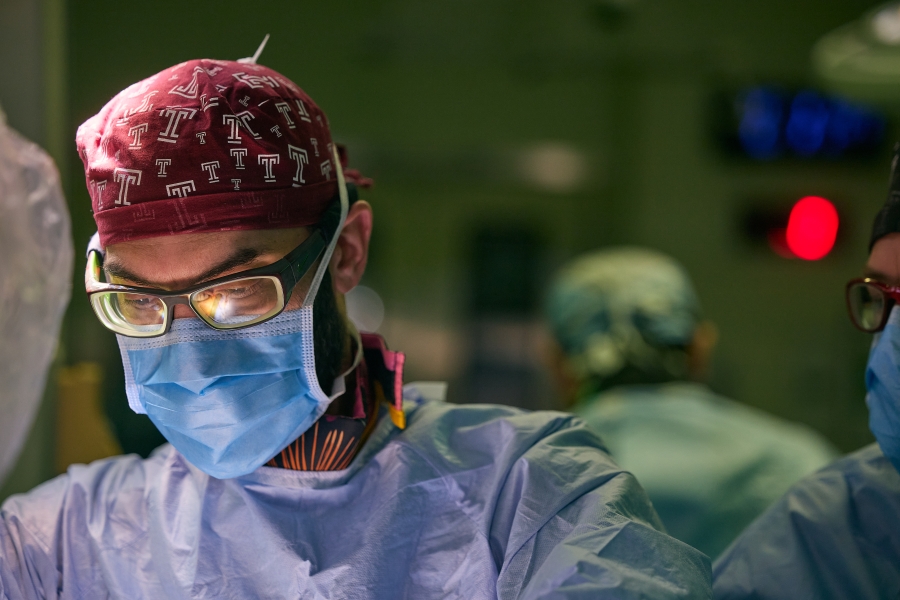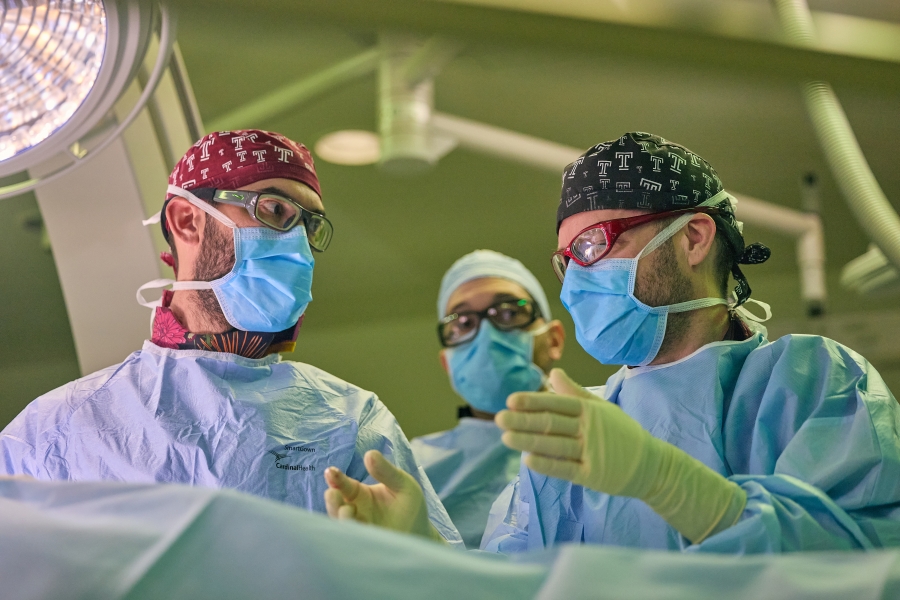Dr. Yoshiya Toyoda arrived at Temple in 2011 as one of the most prolific and sought-after transplant surgeons in the country. He has lived up to his reputation.
As Surgical Director of Temple’s Heart Transplant Program, Dr. Toyoda is achieving far higher heart transplant survival rates than any other hospital in the region while using innovative criteria to match donor hearts and recipients.
His work is giving patients with advanced heart failure a second chance at life.
Q: How is Temple achieving the best heart transplant survival rates in Philadelphia and among the best in the nation?
Dr. Toyoda: The skill and experience of our transplant team is certainly a factor. We have excellent surgical techniques and post-operative management of patients. But we also meticulously assess and select donor hearts and match them to the most appropriate patients.
When a donor heart arrives at Temple, we try to reperfuse it as early as possible to minimize the ischemic time, a technique I developed over the years. All of this translates to a higher chance of a successful outcome and long-term survival for our patients.
Q: Temple is known for accepting patients for heart transplants that other hospitals turn away. Why is that?
Dr. Toyoda: I believe in giving patients who have no other option a chance at life. Other hospitals may reject a person for transplant because of their age or their complicated health history. But I’m confident we can successfully transplant these patients.
Every one of them will die from their disease if they don’t get a new heart. I believe we owe them a chance at life, even if they are not the perfect transplant candidate on paper.
Q: In some cases, you also accept donor hearts that other hospitals reject. Is that risky?
Dr. Toyoda: We do accept these hearts, but it’s important to point out that we have had great success with them. Our program’s 1-year survival rate is 85.0%.*
Remember, there is a dire shortage of donor organs in the U.S., and a significant number of heart transplant candidates die while waiting for a transplant.
Our team very carefully assesses each donor heart and calculates the risk of using it. For these very sick patients, a transplant is preferable to the alternative.
Q: In addition to great survival rates, Temple also transplants patients more quickly than any other hospital in the nation, correct?
Dr. Toyoda: That’s correct. At Temple, 70.9% of our patients receive a new heart within 1 year of being put on the transplant list, compared to 55.2% nationally.* That makes us the fastest ‘list to transplant’ center in the nation. This is possible because of the way we select organs.
Temple is very aggressive about taking hearts that other hospitals may shy away from. However, our experience allows us to take them.
We know we can make these organs work and that patients who receive them can do well — just look at our survival rates. This is especially important for patients who have weeks, days or even hours left to live.
*Based on the July 2021 Scientific Registry of Transplant Recipients report.
Helpful Resources
For Patients
- Heart transplant — what you need to know
- How to get on the heart transplant waiting list
- Find a heart failure specialist near you
For Physicians
- Refer a patient
- Learn about Temple’s Heart Transplant Program
- Read about our heart transplant outcomes
Editor's Note: This blog was updated on August 5, 2021, to reflect the latest heart transplant data from the Scientific Registry of Transplant Recipients report.


